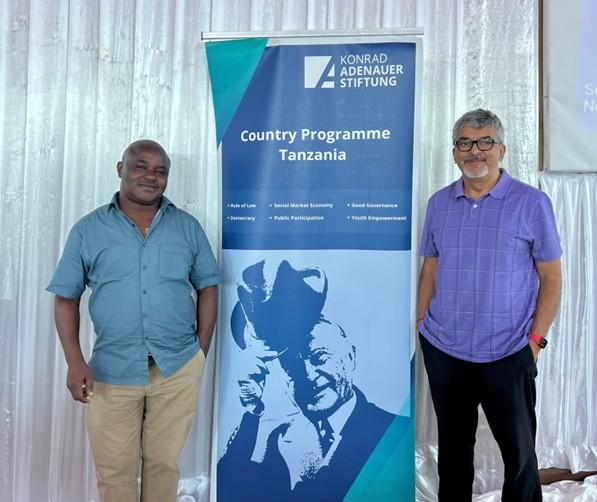This report is product of invaluable contributions made by several experts, stakeholders and institutions. Tanzania Episcopal Conference (TEC) recognizes their technical, moral, material and financial supports which led to successful completion of study in Kenya and South Africa and this report as well.
First and foremost, TEC appreciates the financial support provided by Konrad Adenauer Stiftung (KAS-Tanzania Office) under the leadership of Dr. Tilmann Feltes (PhD), which facilitated the research team to travel to Kenya and South Africa for data collection, preparation of the draft report and holding the stakeholders’ meeting for report sharing, validation and improvement.
Secondly, TEC would like to thank the electoral commissions for Kenya and South Africa; the Independent Electoral and Boundaries Commission (IEBC) and the Electoral Commission of South Africa (IEC) respectively for receiving and cooperating the research team from TEC during data collection in July and August, 2023. In a special way, TEC appreciates the efforts made by the Commission Secretary for IEBC Mr. Marjan Hussein Marjan who travelled to Tanzania to participate into the stakeholders’ meeting held in 17th November, 2023. His open and sincere contributions and reflections on electoral democracy in Africa were highly remarkable.
Thirdly, TEC would like to express its delightment for the honest and relevant experiences on the role of faith-based organizations and political parties in Africa for strengthening democracy shared by Dr. Holger Dix (PhD), the Director of the Regional Programme Political Dialogue Sub-Saharan Africa under KAS based in Johannesburg, South Africa.
Fourthly, TEC is highly grateful for all commission staff from IEBC and IEC who participated actively into interviews and focus group discussions during the study visit in Kenya and South Africa respectively.
First and foremost, TEC appreciates the financial support provided by Konrad Adenauer Stiftung (KAS-Tanzania Office) under the leadership of Dr. Tilmann Feltes (PhD), which facilitated the research team to travel to Kenya and South Africa for data collection, preparation of the draft report and holding the stakeholders’ meeting for report sharing, validation and improvement.
Secondly, TEC would like to thank the electoral commissions for Kenya and South Africa; the Independent Electoral and Boundaries Commission (IEBC) and the Electoral Commission of South Africa (IEC) respectively for receiving and cooperating the research team from TEC during data collection in July and August, 2023. In a special way, TEC appreciates the efforts made by the Commission Secretary for IEBC Mr. Marjan Hussein Marjan who travelled to Tanzania to participate into the stakeholders’ meeting held in 17th November, 2023. His open and sincere contributions and reflections on electoral democracy in Africa were highly remarkable.
Thirdly, TEC would like to express its delightment for the honest and relevant experiences on the role of faith-based organizations and political parties in Africa for strengthening democracy shared by Dr. Holger Dix (PhD), the Director of the Regional Programme Political Dialogue Sub-Saharan Africa under KAS based in Johannesburg, South Africa.
Fourthly, TEC is highly grateful for all commission staff from IEBC and IEC who participated actively into interviews and focus group discussions during the study visit in Kenya and South Africa respectively.




